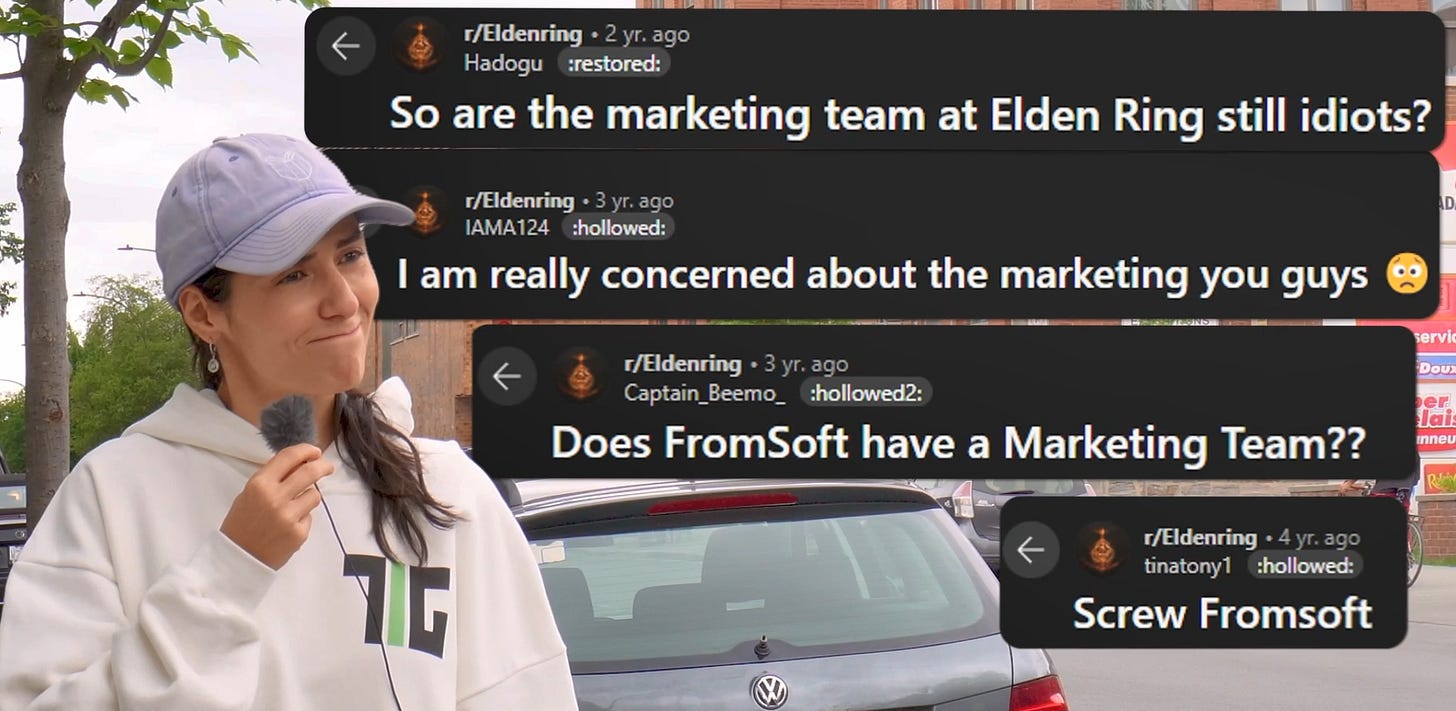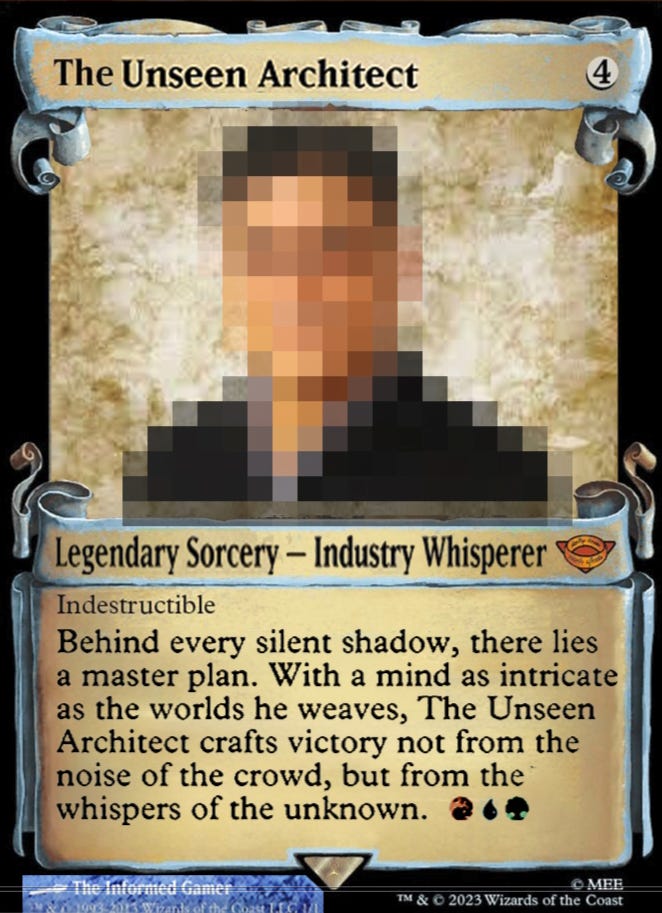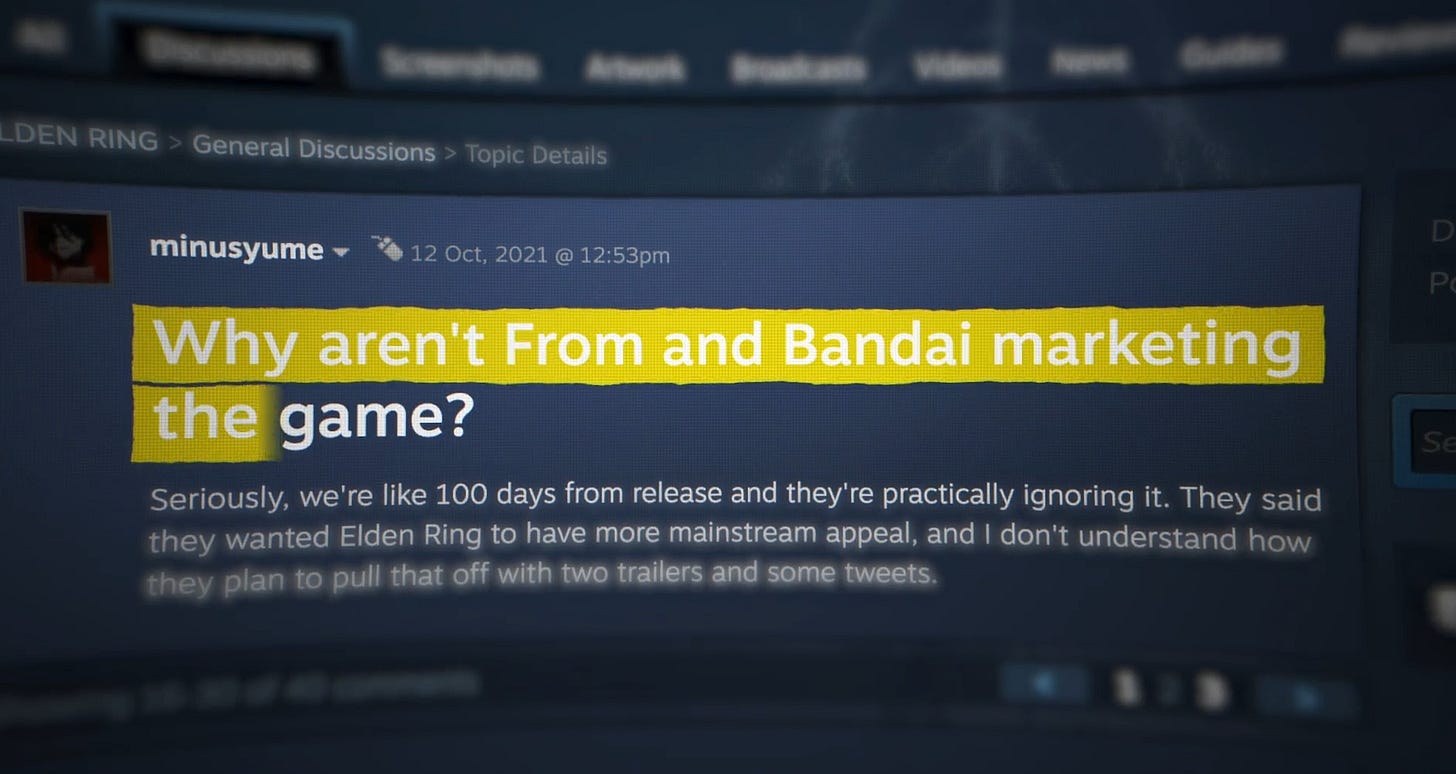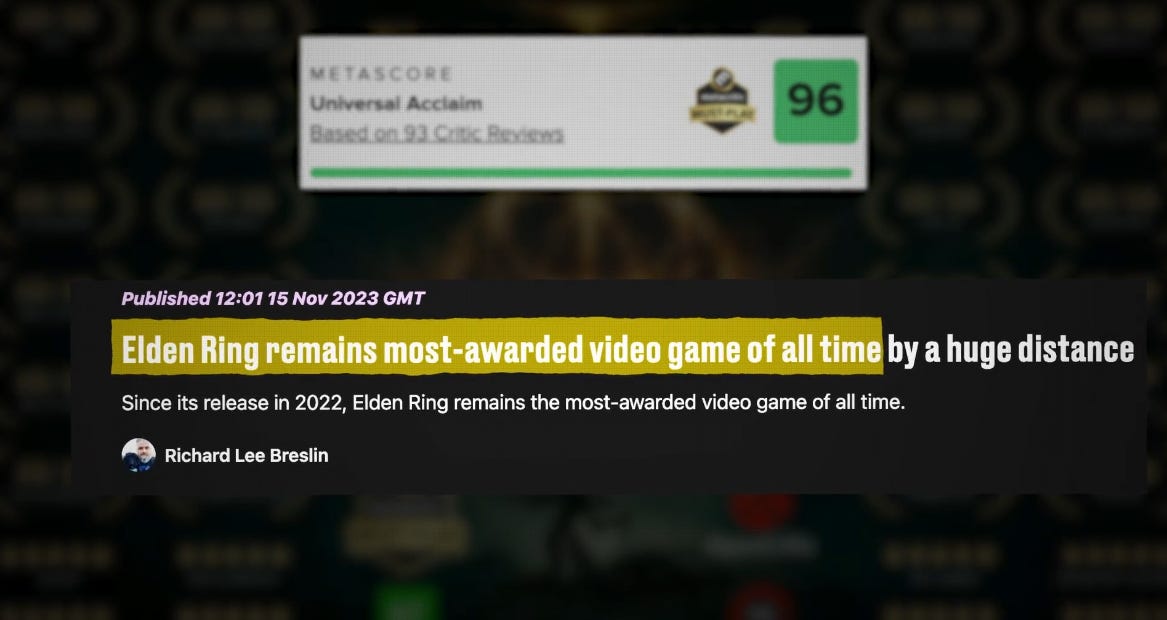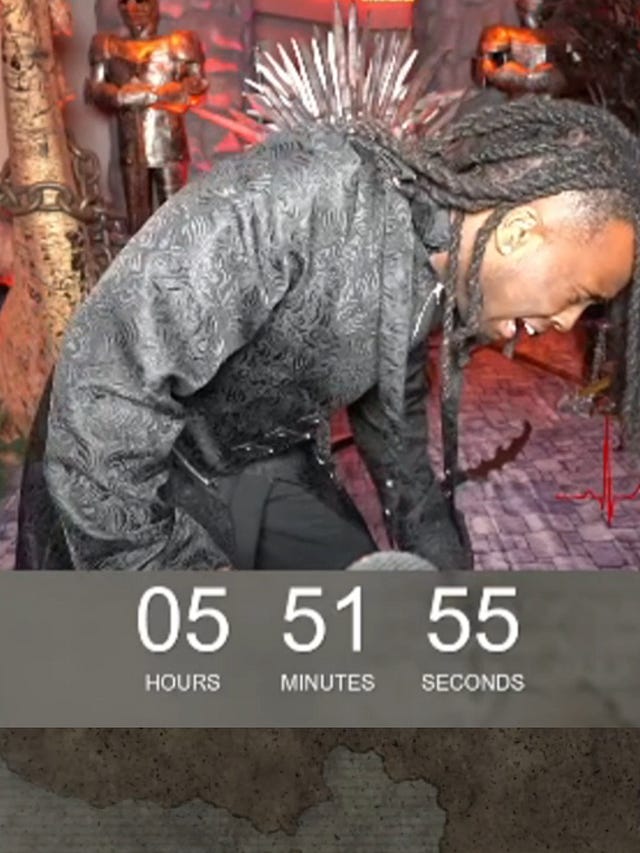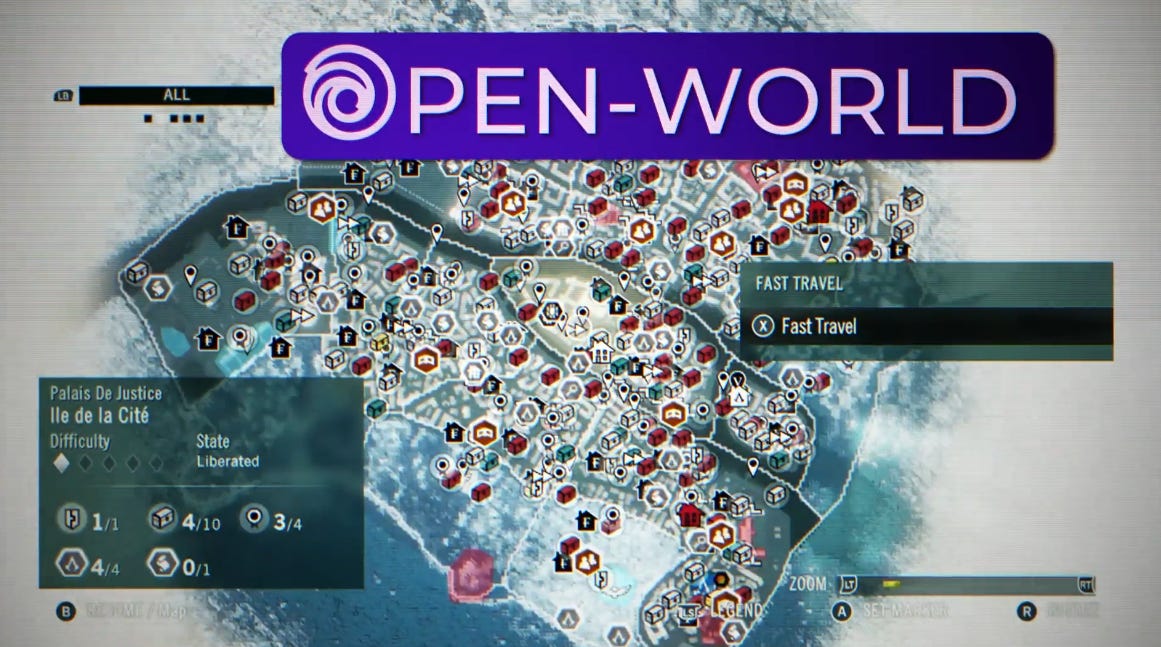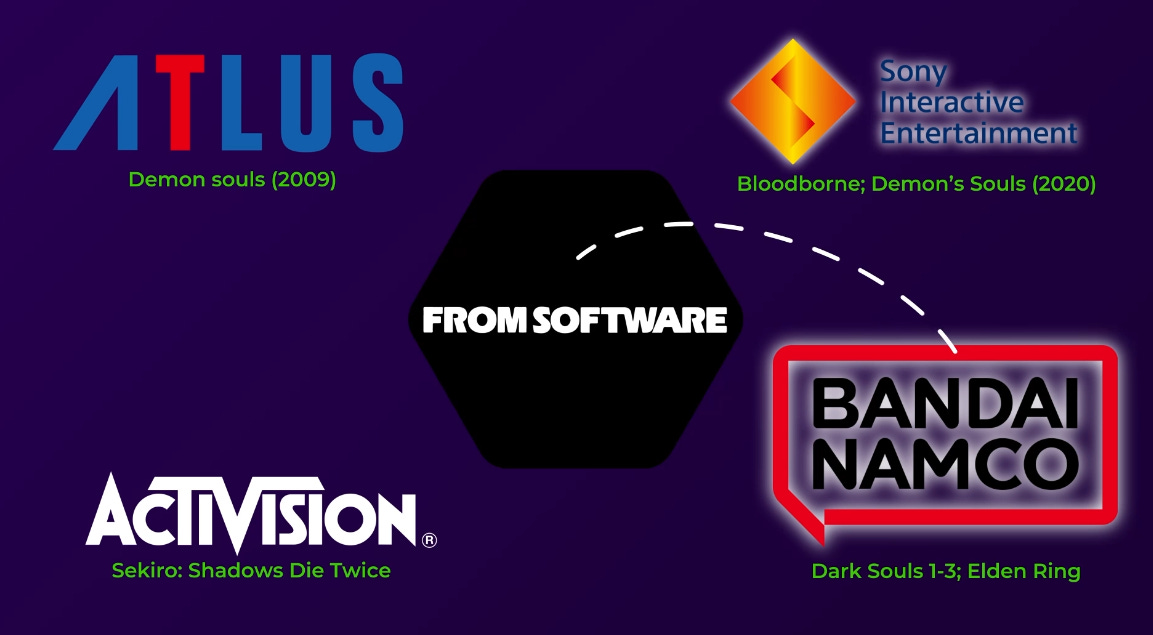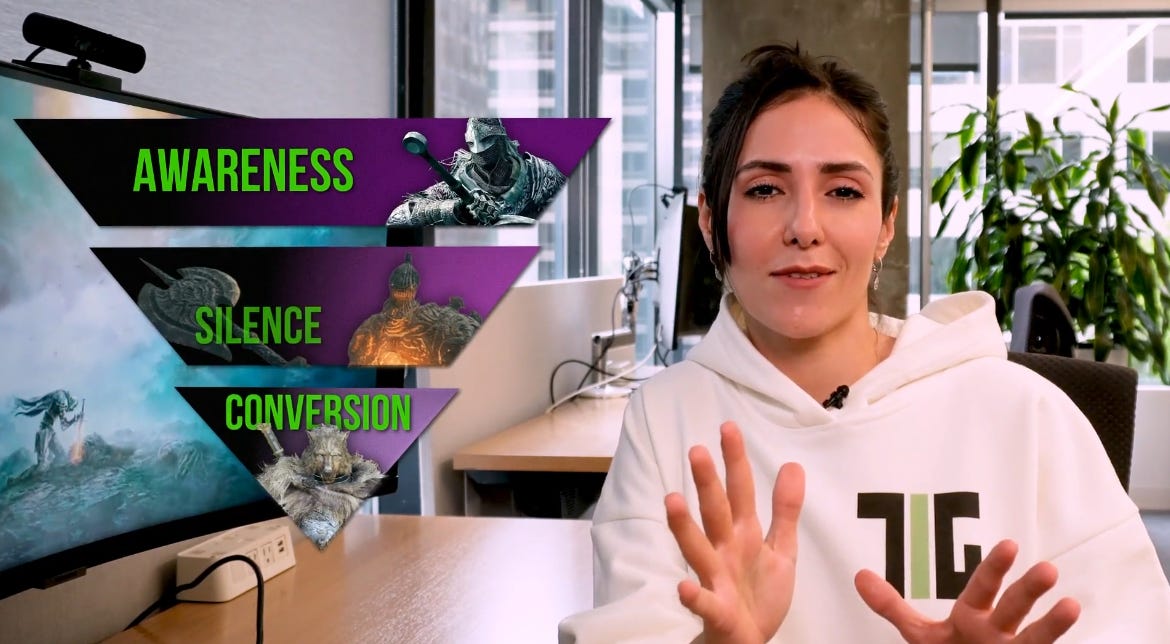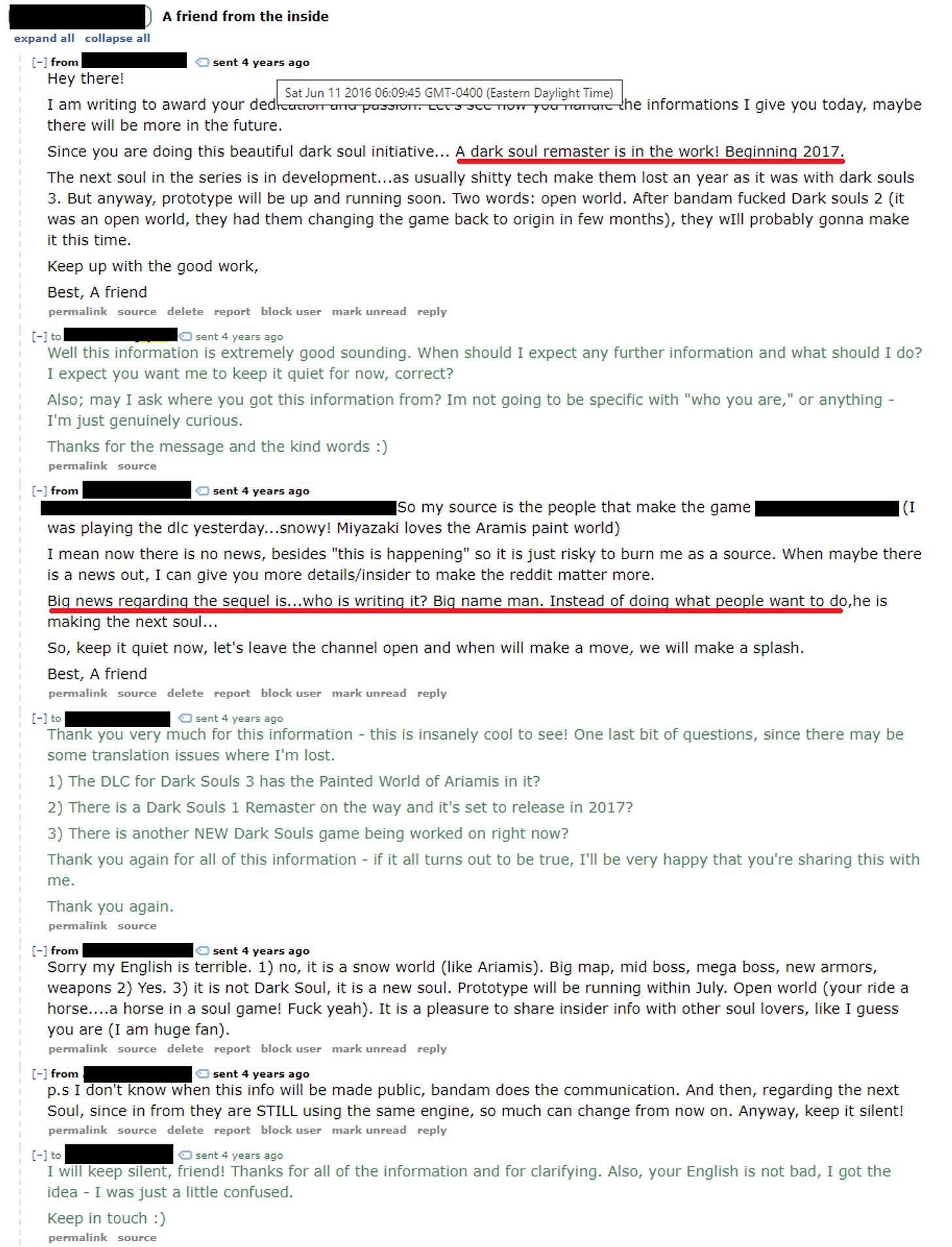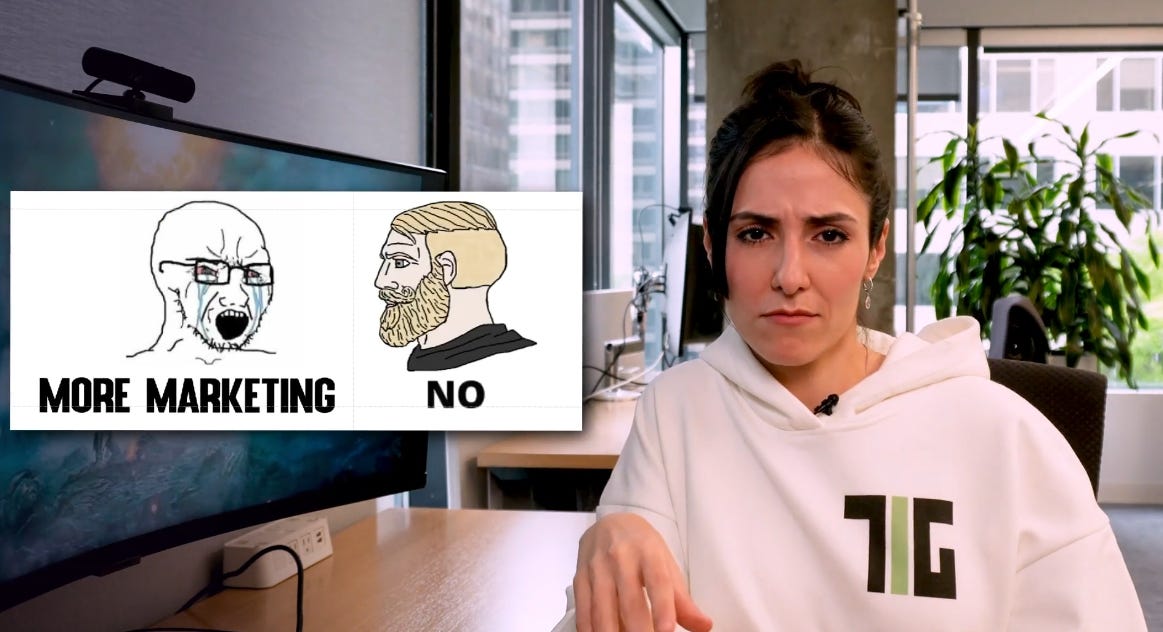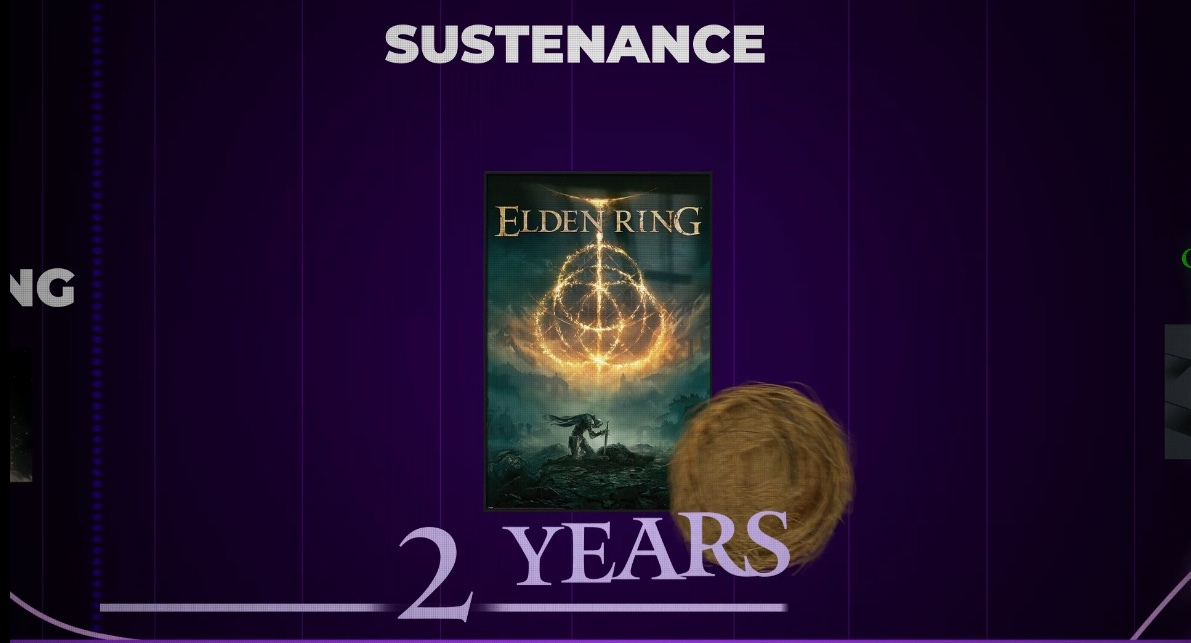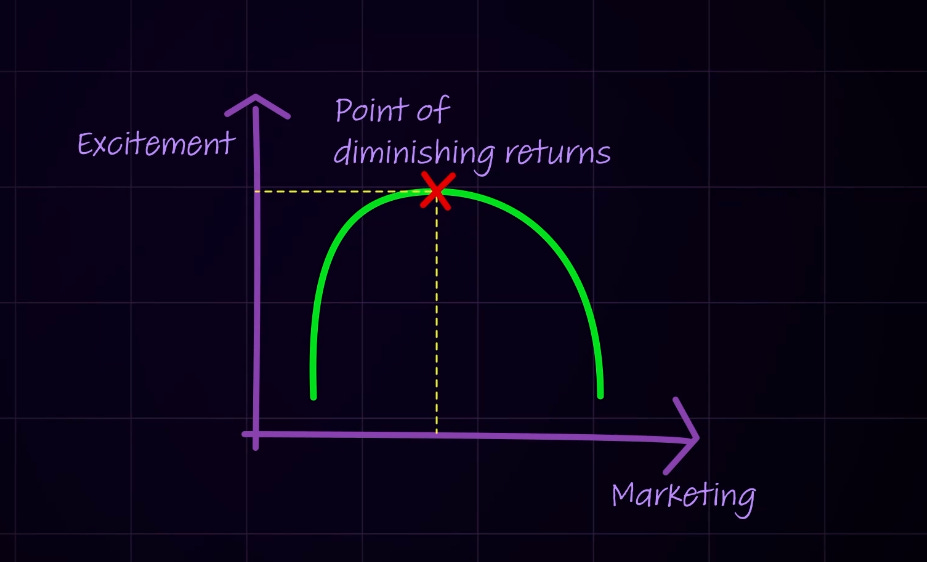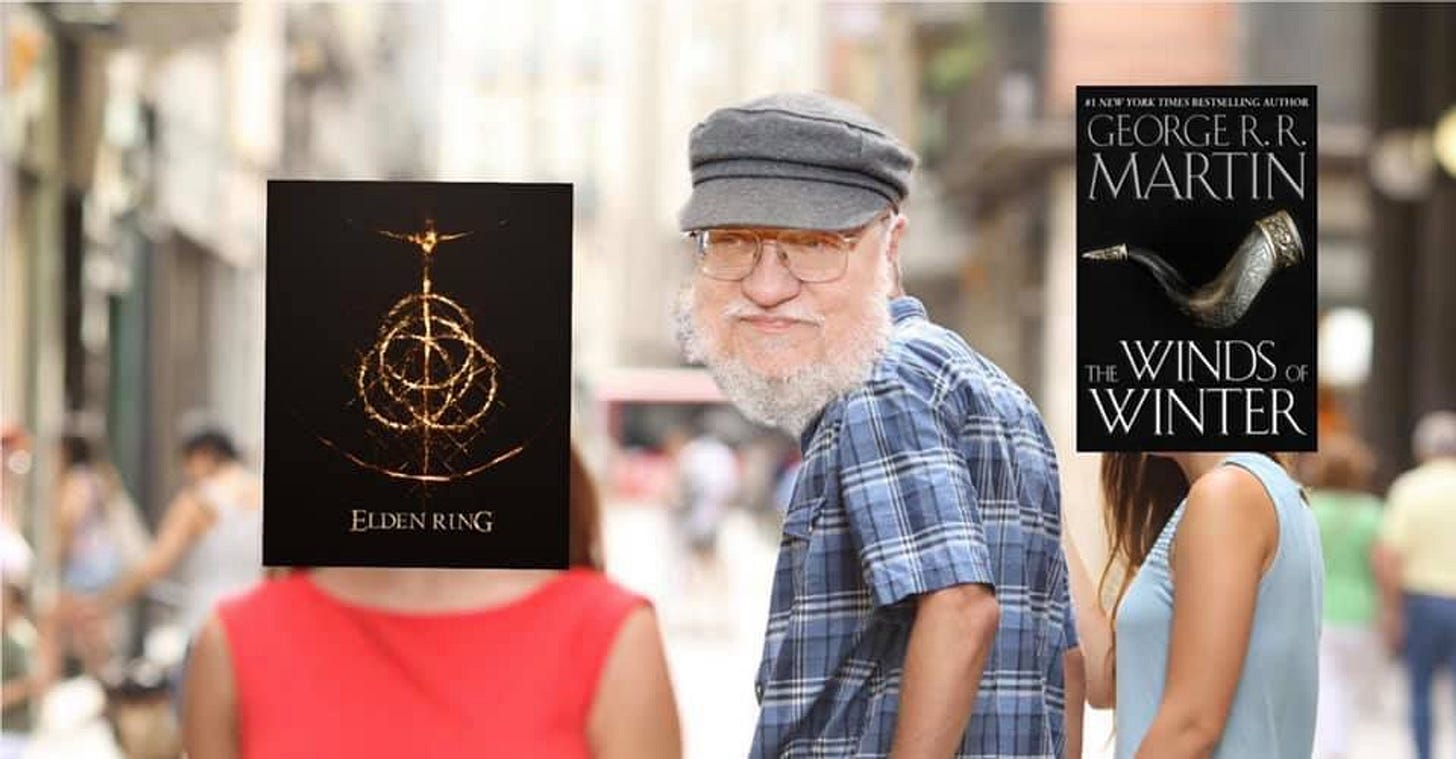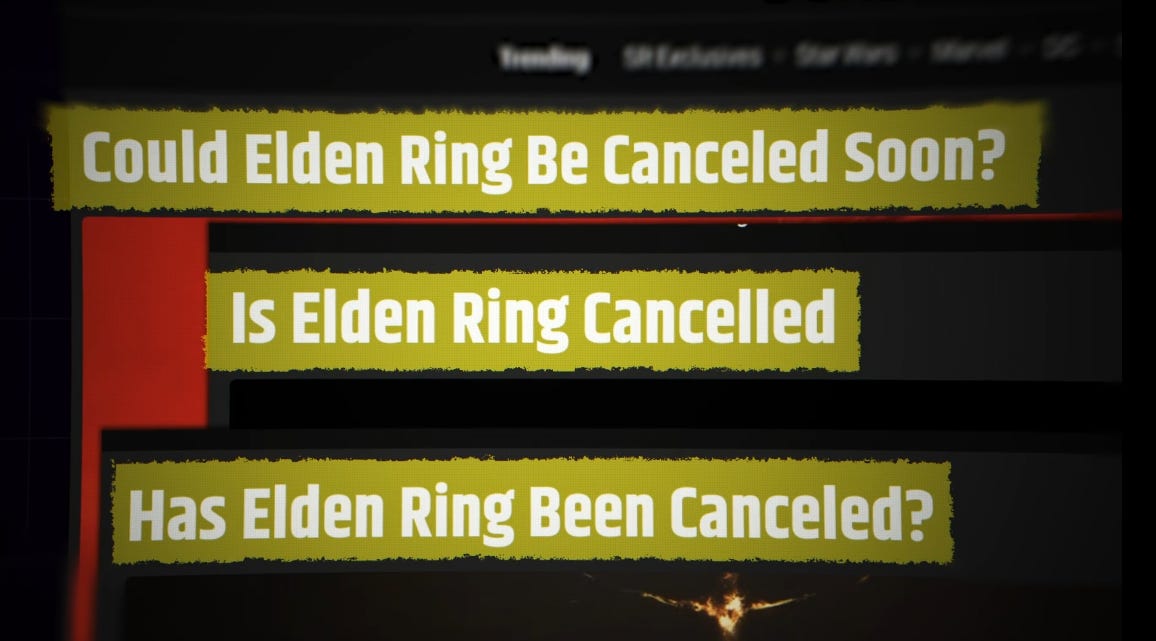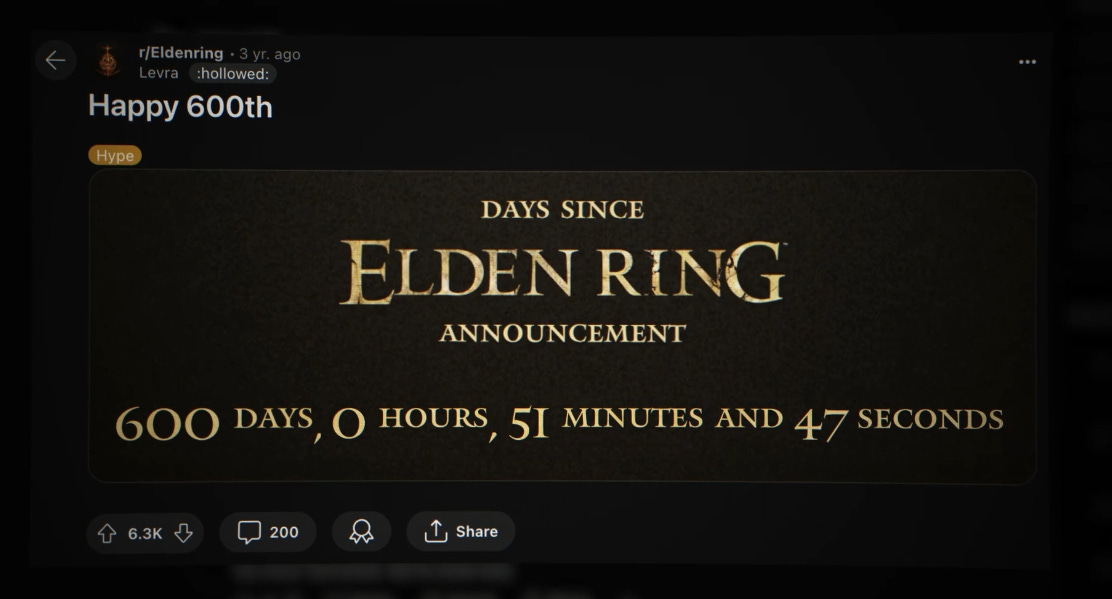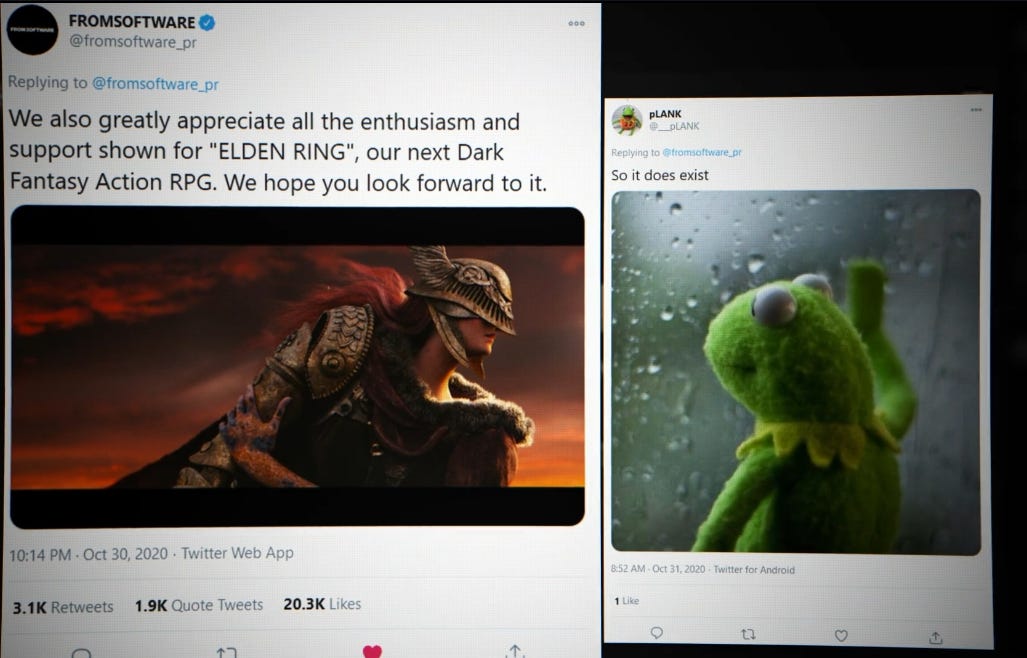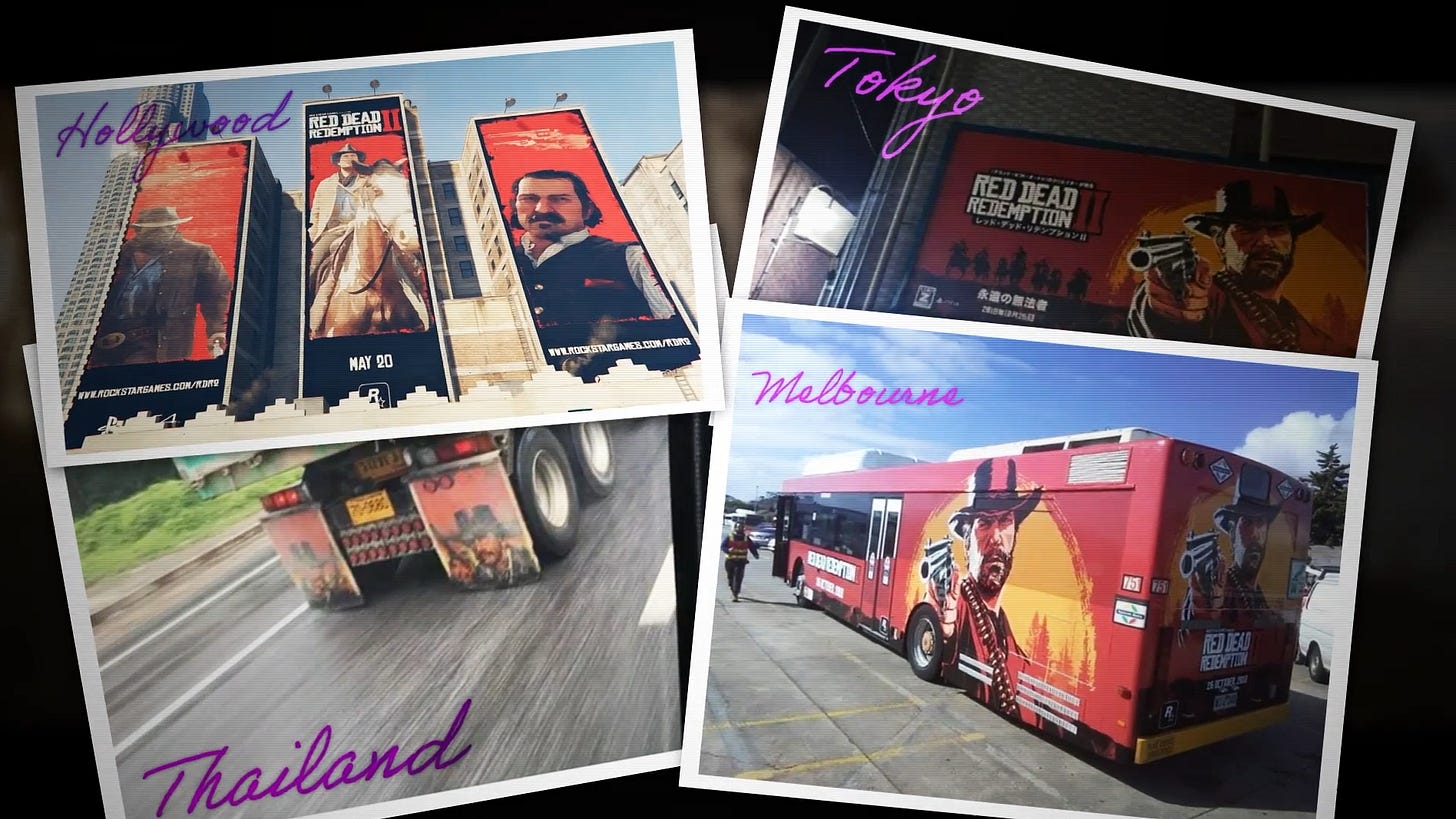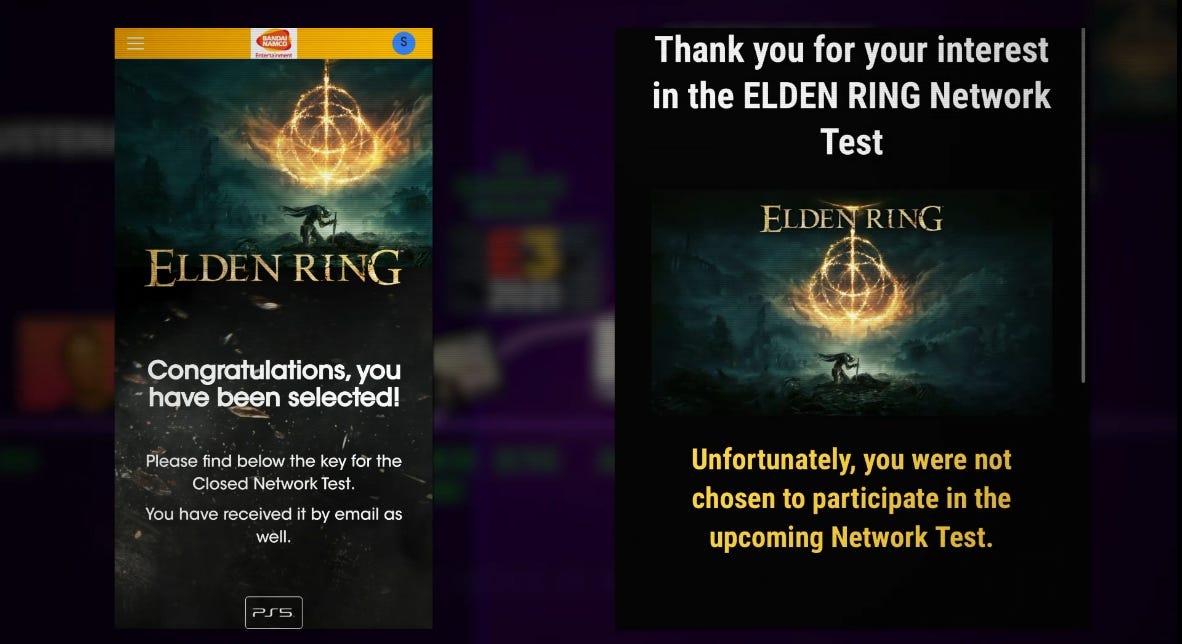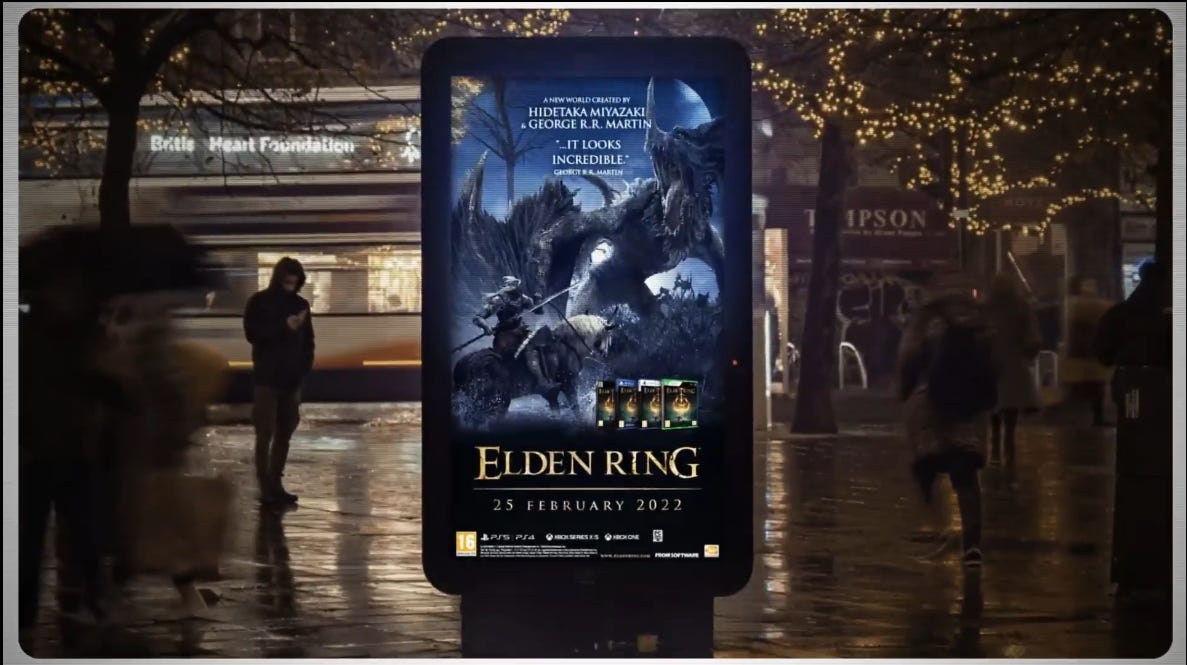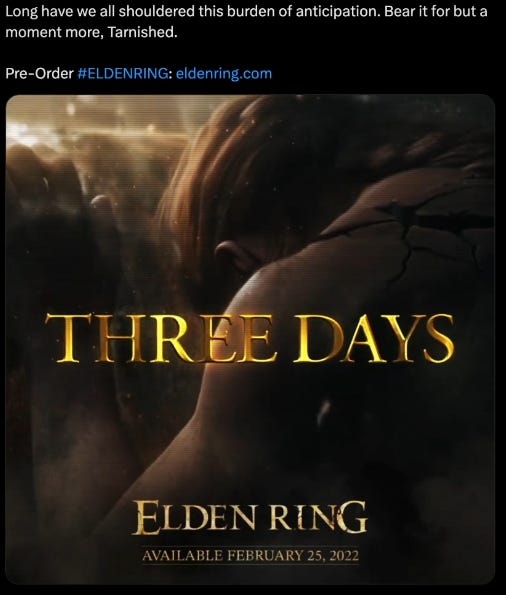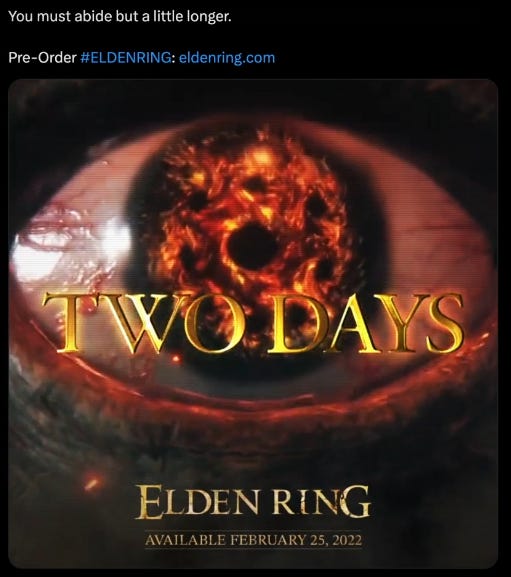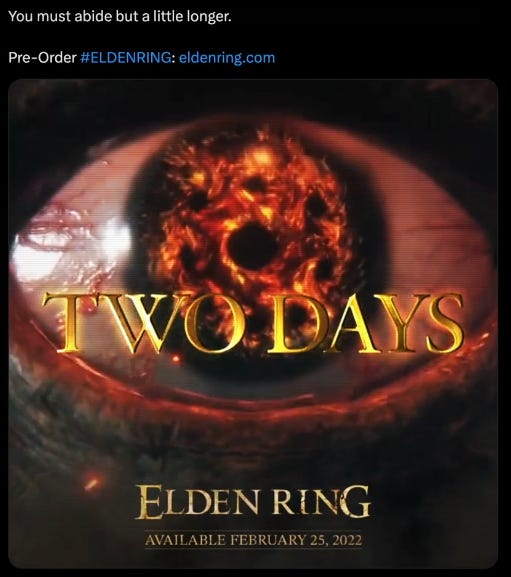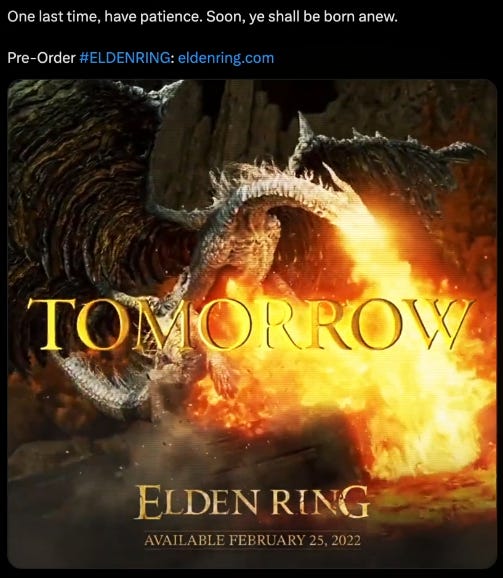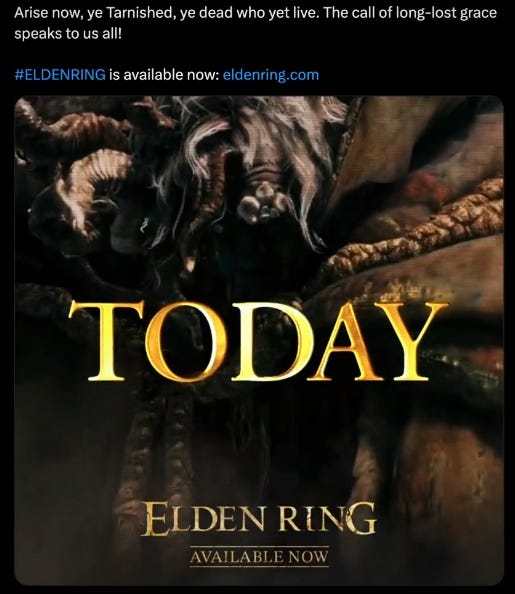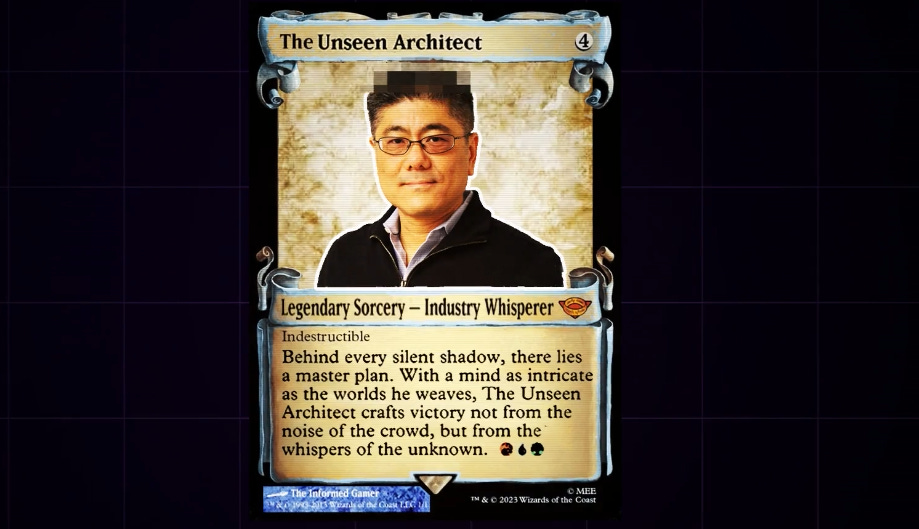Elden Ring's OhhhHHh so Simple Strategy that Made Millions
And the Unseen Architect Behind It.
In the world of gaming giants, everyone gets criticized, especially when breaking the rules. Elden Ring did just that. No hand -holding, brutally difficult and quiet on the marketing front.
And yet, it sold millions of copies and outsmarted the industry on many fronts. An unusual success according to some top studio developers.
But beyond its masterstroke of a game, Elden Ring's marketing was just as masterful. Instead of loud campaigns, they let the game speak for itself, which had fans calling it many things.
But what might have seemed like poor marketing was actually a deliberate three -part strategy designed by an unseen architect who knew that sometimes the best noise is no noise at all.
Guys, this game needs no introduction.
And maybe that's what their marketing team figured when launching the game with a seemingly little fanfare.
But to really understand their unusual marketing, we first got to understand their game philosophy.
Now, while the Tarnished ones among you know all about this game, stay tuned. And for the Untarnished ones, let me give you a really quick primer because all you need to know is the following:
Crafted by souls-like innovator Miyazaki and enriched with lore by George R.R. Marting, this so-called niche game blasted past sales of so-called AAA games, became an instant bestseller, was the most tweeted about game, YouTube's biggest game launch ever and with uncountable accolades and sky-high scores it stands unrivaled as the most awarded video game of all times.
One more thing: While its acclaim is record-setting, its brutal difficulty in a marker-free world where dying is expected, makes it a true outlier. You’re tossed into a vast, gothic world on a quest to assemble the Elden Ring and become Elden Lord; but that’s a quest marked by over 9 billion player deaths.
And when you find yourself dying and grinding six hours on an optional boss, nailing down near-perfect precision patterns, you'll start to wonder: How does a so-called niche game, with no hand-holding and daring difficulty become a beacon of success?
Well, it’s easy: because in today’s industry cluttered with microtransactions, quest-marker flooded open worlds and hand holding in games that are single-player, Elden Ring does the exact opposite.
It doesn’t hold your hand, doesn’t tell what’s in the distance; it leaves you in the dark, a realm of challenge, mystery, and discovery. And that’s exactly how they marketed it: Low key, no hype and keeping everyone guessing. A marketing that mirrors their game design. As above, so below.
BUT - pulling this off wasn’t a walk in the Lands Between.
The challenge: global expansion and broader appeal for a franchise that’s typically made for hardcore gamers. So what do you do? You switch publishers to one that is a good fit for Elden Ring, does all overseas marketing and hires a wizard known for boosting big-name brands.
And that’s what happend: While Fromsoft handled marketing in Japan, Bamco took care of the rest. But with a game shrouded in mystery, how do you introduce it to a detail-hungry world without revealing too much?
You just trust your publisher. Or in this case, the Unseen Architect. In an industry hooked on massive AAA budgets and flashy marketing, Bamco focused on their own expertise: Know thy fans. Instead of investing millions into promotion, they bet on a ‘small but secure success’ within their core fanbase. After all, Fromsoft already had a legion of die-hard fans from previous releases. It’s a strategy not about chasing every player out there, but satisfying the right ones. Manage expectations and the rest will come. It’s Bamco’s ‘recipe for success.’
But how to begin when traditional marketing dictates a funnel from Awareness to Consideration to Conversion? Well, our Unseen Architect here reshaped the playbook. Delete ‘Consideration’ - another word for constant marketing - and bring in ‘Silence’ - almost like the calm before a storm. .
And just to ditch the corporate vibe, let’s call these stages Awakening, Sustenance, and Ascension
THE AWAKENING
When players first enter the world of Elden Ring, they are 'awakened' into a vast, mysterious realm that’s new, yet unknown with only minimal context. And that’s mirrored in their marketing: it awakens your curiosity by revealing just enough to intrigue and spark a discussion. It’s the start of a journey marked by something new, yet unknown.
And this journey starts in 2019. Actually in 2016, when a leak described a Dark Soul remaster being in the works written by a big-name man.
Leaks aside, because the official marketing kicked off at E3 2019 with Fromsoft’s announcement trailer. No gameplay. Just epic narration, a big-name man and beautiful CGI.
Remember, the mission was to appeal to a wider audience without revealing too much. So this trailer was their first with a more ‘hopeful’ tone, rather than their typical depressing one. Nevertheless, it was also a trailer shrouded in as much secrecy as promise. All that marketing did was giving you a sense of speculation. And boy, did the community speculate.
As the Twitter marketing machine kicked off, comments about its secrecy popped up. Questions lingered without answers. r/Eldenring was created, art, fake lore and memes emerged from fans eager to fill the void with their own imagination.
But above all, some even begged for an ‘easy mode;’ as if they didn’t know better from previous souls games.
Because if one thing Miyazaki is good at, it’s at saying ‘No.’
More marketing? No. Easy mode? No. Why? Because brand identity. Souls games are tough—that's their trademark. When everyone has to deal with the same Herculean tasks, it fosters a shared culture. In marketing, being known for something specific is crucial - and so is staying on brand.
Fromsoft is resilient in perfecting their own game. That’s why: no easy mode and only some cryptic tweets and concept art. And that. was. all. A strategic move to not only heighten the initial buzz, but to also match the game’s ethos of facing the unknown. “Show, don’t tell” is what set the tone for what was yet to come.
THE SUSTENANCE
So, the Unseen Architect got your attention. You’re an awakened one. Now what? Traditionally, game studios now keep beating the markting drum to maintain hype through collabs, teasers, showcases. But Elden Ring’s drum fell silent. For 2 years. I call it the ‘Sustenance’ stage. Because in Elden Ring, after you’ve been exposed to the Lands Between, you must sustain yourself through self-directed exploration. No guidance. Only lore in measured doses.
Their marketing mirrors this: Instead of continuous updates, they kept their cool. No overload, no spoilers. Neither on Twitter, the Tokyo Game Show or Gamescom. No Elden Ring line-up whatsoever. Instead, endless threads that either question the strategy, the marketing team, or the company as a whole.
Granted, you’d think that aiming for global reach would mean showing up at least at major regional events - but - our unseen architect remained determined to guard the mystery with a stoic resolve. It wasn’t because of Covid or the delayed release date, no. He understood the law of diminishing returns: Too much hype dulls the excitement.
Deathloop for instance overhyped and under-informed so much that threads emerged to complain about their over-the-top marketing.
And what does Miyazaki think? Well, he is big on imagination. His games drop clues in item descriptions so you can piece together the narrative in your own way. Just like when he was a kid and pieced togehter English fantasy books he barely understood. “That power of imagination is important to me,” he said and it’s something he loves to see unfold not only in his games but in the marketing, too.
No wonder they didn’t milk the heck out of the big-name man. His role was modest, after all.
They could've hyped his involvement to attract the wider audience. Yet, they didn’t even use their ‘Ultimate Game of All Time’ award for Dark Souls to pitch Elden Ring as its successor. They rather play it safe to avoid the risk of potential backlash. But the press didn’t see it the same way.
Headlines speculated on everything from a cancelled game to the lack of news. On Reddit, it went wild, with memes, fake lore and even an impressive timline of the entire subreddit. When Phil Spencer claimed to have played it, the subreddit went crazy. Some say the real marketing magic happened here, but in reality, it was more an echo chamber of the most dedicated fans.
People started counting days, hours and minutes and on Twitter, all they got was a mere “Thank you for your support” post.
And then…a leak. Internal gameplay footage circulated online that was allegedly meant for investors.
It was blurry and shot from a weird angle, but fans didn’t have to wait much longer anyways, because 2 months later, it finally arrived:
*watch first 20 seconds
THE ASCENSION
And Elden Ring it was. The first gameplay trailer, two years after announce and 8 months before release. It’s typical for a marketing strategy to now start releasing a more steady stream of information, leading up to the game’s launch. Here our Unseen Architect went back to doing traditional marketing. Actually, Red Dead Redemption 2 did the very same thing. Announce release, then do nothing for years until one month before launch. Instead of the usual promotions, Rockstar opted for a campaign of ‘painting the world red,’ from Thailand, to Tokyo, Melbourne and Hollywood.
After Elden Ring’s first gameplay trailer, which - yet again - provoked more questions than answers, the game won a few more awards at Gamescom and then announced a Closed Network Test with some lucky as well as some unlucky fans.
For the rest of the year, Elden Ring continued winning award after award, released a story trailer and ended the year with another “Thank you.”
And then, new year, new post. Just 2 months to go. In the game, players approach the endgame and face the most challenging fights; similarly, the final phase of the marketing ramps up with more updates and more media coverage. Now it’s time to beat the international marketing drum like never before. Suddenly, Elden Ring was everywhere. It showed up on Redbull’s Twitter and even at the UFC event in Houston, Texas - as a major sponsor.
London too was soaked in Elden Ring lore. Bandai Namco UK worked with a single image to spread the word. Whether it was on billboards, buses, the London Underground or old telephone booths, the dragon spread the lore all under the mission of reaching a wider audience.
On Twitter, a fan-made Mr. Bean became the best valentine’s gift ever, system requirements were released and then the long-desired countdown:
And then, after all the hollowing and suffering of relentless speculating - the official launch of Elden Ring.
Now, the marketing machinery was in full blast. Live Action Trailer #1. Live Action Trailer #2. The game was a bestseller and sold 12M copies in its first 2 weeks, including 1M in Japan.
This game became Fromsoft’s best-selling and certainly fastest-selling game ever. And at this pinnacle moment, just as Elden Ring launched in all its glory, our Unseen Architect accomplished his mission. Our mystery man keeps a low profile, even on LinkedIn, but I got you covered.
Our mastermind is none other but Mr. Lin Leng - Senior Director of Marketing at Bandai Namco. Before joining the ranks at Bandai Namco, Lin honed his marketing magic at Disney, NCsoft, WB Games, Blizzard and is now weaving strategies over at Netflix. In an employee interview on Bamco’s website, Lin shared that “As Brand Manager, I’m responsible for the overall marketing strategy of the game.” Tasked to expand the target audience, the challenge for him was “to reveal enough info to excite and surprise but without revealing too much as to spoiling the playing experience.”
He and his team were all about being super selective with what to show and when. Timing is everything in marketing. And especially today, in a culture of oversharing, playing hard to get is a clever rarity. But that doesn’t mean every game studio can pull this off. You have to have at least 3 things going for you:
a track record of successful games
a strong brand
and a passionate fan base
But above all, it’s about staying true to your craft. In today’s gaming industry where studios often pivot to please shareholders, FromSoft stands firm. In fact, they even have “no idea why it's selling so well," and won't let sales change how it makes games.” In an interview, Elden Ring producer Kitao-san affirms that they “won’t start aiming for new big hits like Elden Ring. Our stance of creating games we think are fun and worthwhile will not be changing.”
And there you have it. Elden Ring, after five years of craftsmanship, is not just a game but a testament to what happens when a studio holds true to its vision. More sales and more money doesn’t guarantee success. Because if one thing kills a business, it’s chasing constant growth. As paradoxical as it sounds but chasing growth for the sake of growth is not growing a business, it’s killing it.
But again, getting killed in Elden Ring has at least a way deeper meaning. And so, in light of the new Elden Ring DLC, here’s to the thrill of the fight and the stories we’ll forge. Happy Dying!


